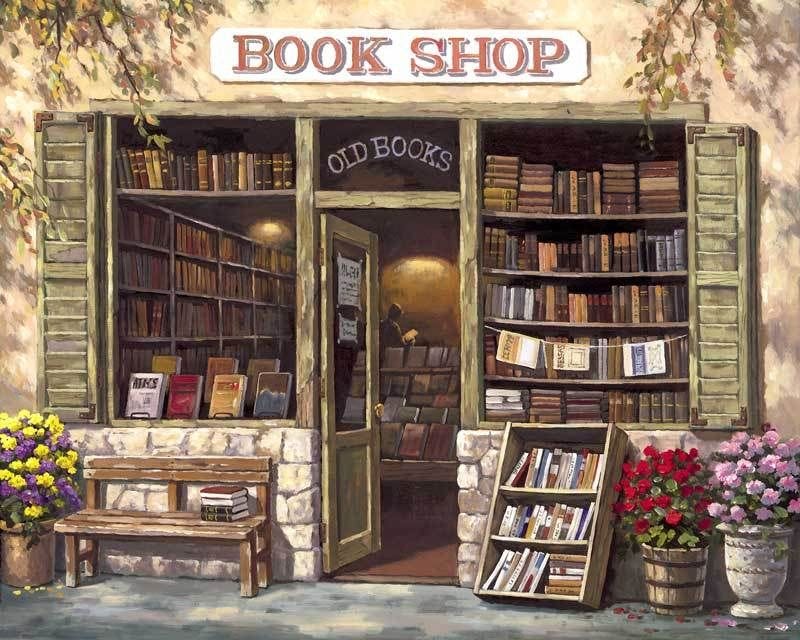Wait! Just Listen is your intellectual sanctuary away from the digital hum-drum of clickbait and meme-saturated content. Join me as I delicately unpack the human condition and its eccentricities, in this free weekly Sunday newsletter. Subscribe to enjoy online writing the way it was meant to be - carefully curated, nuanced and heartfelt.

“What is your niche?” is a question that permeates everything from academic boardrooms to job interviews to hipster dinner parties. Having a specialisation is perceived as valued currency for upward mobility. One is perceived to have developed an undisputed mastery in a particular field. Underlying this obsession with specialisms is the thinly-veiled assumption that reality or any subject matter can only be understood if it is broken down into fragments small enough for its every nook and cranny to be thoroughly examined.
But I’m here to champion the unheralded anti-heroes of our times - the people who view the world not in its minutiae but as a wonderous whole with possibilities to be explored and mysteries to be solved. I’m here to speak in defence of the generalist. Because you see, I aspire to be one.
First let us address that whiff of hypocrisy in the room. Yes, I’ve previously embarked on a somewhat self-indulgent scholarly pursuit to become a subject-expert. Yes, I’ve strategically oriented my academic life to a select few topics in the social sciences. Yes, my day-job is concentrated in a specialist discipline.
Yet, despite all the above, I’m no specialist. Not by any stretch of the imagination.
In fact, I regard myself as a self-styled journeyman traversing across various ideas, ideologies and realities in search of new intellectual experiences. Inherently, and this view will probably not be popular, the idea of specialisation, in the humanities at least, serves as a convenient excuse for the continued hyper-monetisation of education and learning. Universities have long romanticised the notion of ‘finding your speciality and niche’, attributing it with a sheen of respectability and most important of all, employability. But how useful are specialist streams in the real world?
Sure, there are certain fields like in the medical sciences where specialist knowledge is perhaps the point of difference in saving a life, but even in science, the ‘bigger picture’ is one that often prevails as a driving force for social progress. This is because science in isolation deals with the rigours of fact outside the sometimes indecipherable messiness of culture.
For example, there is now a bourgeoning realisation in our current pandemic riddled times that science and epidemiology do not translate seamlessly to health policy measures. There is constant friction between ‘what the science says’ and how health policy should be tailored to influence public behaviour. The same degree of exactitude and certainty that certain specialist fields pride themselves with in theorising reality are also responsible for obscuring what I like to call the ‘bigger picture’. This broader outlook that I speak of transcends any single domain because it is concerned with the general balance of life.
My gripe with specialisation stems from the unfair criticisms that generalism has endured both in everyday culture and within more formalised institutional circles. I’ve lost count of the number of times I’ve heard university students stress over the major they should choose. One can lose sight of entire systems of knowledge and practices by simply focusing on very specific strands of discourse in particular cultural spaces.
Additionally, there is a general tendency for specialists (I use this term very liberally) to collaborate and share knowledge with those of similar types of expertise and credentials - forming what I like to call an ivory tower of self-perpetuating greatness.
Buckminster Fuller, the preeminent American systems theorist provided an eloquently crafted account of his reservations around specialisation in “The Wellspring of Reality,” the introductory essay to his seminal 1975 volume Synergetics: Explorations in the Geometry of Thinking. Fuller regards specialisation as the enemy of synergy and proposes a reframing of culture that could “get all of humanity to educate itself swiftly enough to generate spontaneous social behaviours that will avoid extinction.” The core of his argument was that specialisation has ultimately led to a divisive community without social responsibility.
It has become a well-worn strategy for pockets of the public and politicians to ‘leave it to the experts’, with the implication that mere mortals will not have the capacity to offer constructive advice and instigate positive social change. We accept only what has been pre-digested for us by institutionally ordained ‘knowledge authorities’; but this is then a spurious reality.
Fuller states:
Specialisation has bred feelings of isolation, futility, and confusion in individuals. It has also resulted in the individual’s leaving responsibility for thinking and social action to others. Specialization breeds biases that ultimately aggregate as international and ideological discord, which in turn leads to war.
There is however an even more fundamental point in Fuller’s writing. Ultimately, specialisation works of the presumption of scarcity - that there are only a few qualified sections in society with the requisite skills to engage with any particular topic or material. This results in an inevitable bias in commentary towards institutionally accredited expertise. The voice of the ‘common man’ doesn’t legitimate discussion.

All information then becomes suspect and to a point, agenda-driven, when it is funnelled through specialist domains for wider dissemination. The media, as key intermediaries in this process, have their own commercial imperatives to turn this already highly-narrowed down body of knowledge (whatever it may be) into provocative click-bait pieces of content. It is a scary proposition to entertain.
There is an endangered value to robust and indiscriminate curiosity in grasping the big picture. The responsibility to navigate the murky waters of uncertainty is outsourced to sources of ‘authority’.
We need a more inclusive comprehension by all humanity. The answer to this lies with the unassuming humble generalist - one who remains unperturbed with titles, prefixes and glowing academic accolades. The generalist is a true artist because he/she is not occupied with the vocation or the technical intricacies of learning at the expense of meaning. Life is the inspiration all one needs to create, contribute and write.
To paraphrase education reformer John Dewey, the scientific inquirer shall not be merely the scientist, the teacher merely the pedagogue, the clergyman merely one who wears the cloth, and so on. The only occupation of the individual or what one would refer to as his ‘true calling’ should be the intention to provide service to society, contributing to its flourishment by drawing on life experience regardless of whether that involved formalised education or specialist training.
Because true wisdom lies in embracing the bigger picture that life has to offer - a statement that could perhaps be a quoteworthy ice breaker at your next hipster dinner party. You can thank me later.




Very insightful. Specialists are obviously necessary but I like how you've taken apart societal dependence on the expertise of specialists. This says a lot I'll be pondering for a long time: "specialisation has ultimately led to a divisive community without social responsibility."
I think finding a niche is very useful in a business context, especially in the context of the content creation business. In the age of the internet and web 2.0, it is very easy for your offering to drown in the ocean of competition. On the other hand, when you "niche down", you play in your own little league. As Peter Thiel famously said, you don't want to be the best, you want to be the only one. (I'm not sure if it was really Peter Thiel, but he has a very similar quote)
Being a generalist topic-wise can still be very valuable if you niche down on the specifics of some other kind, like the type of service, delivery channel, etc.